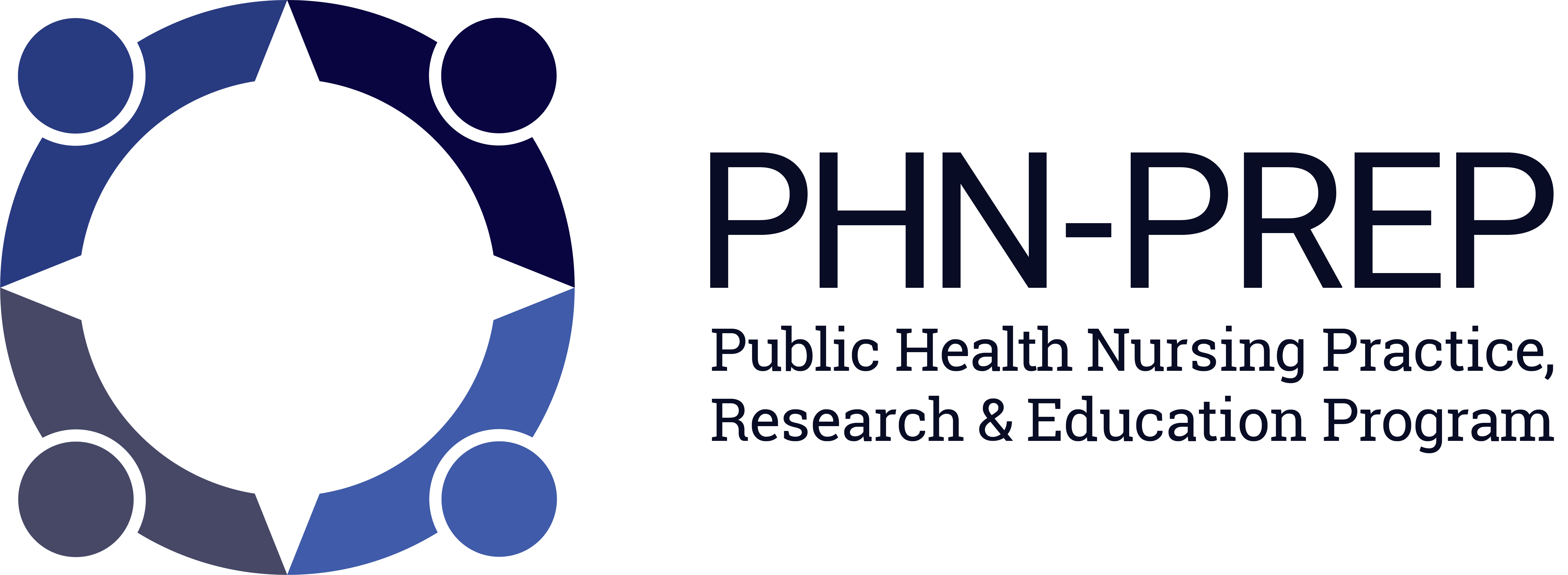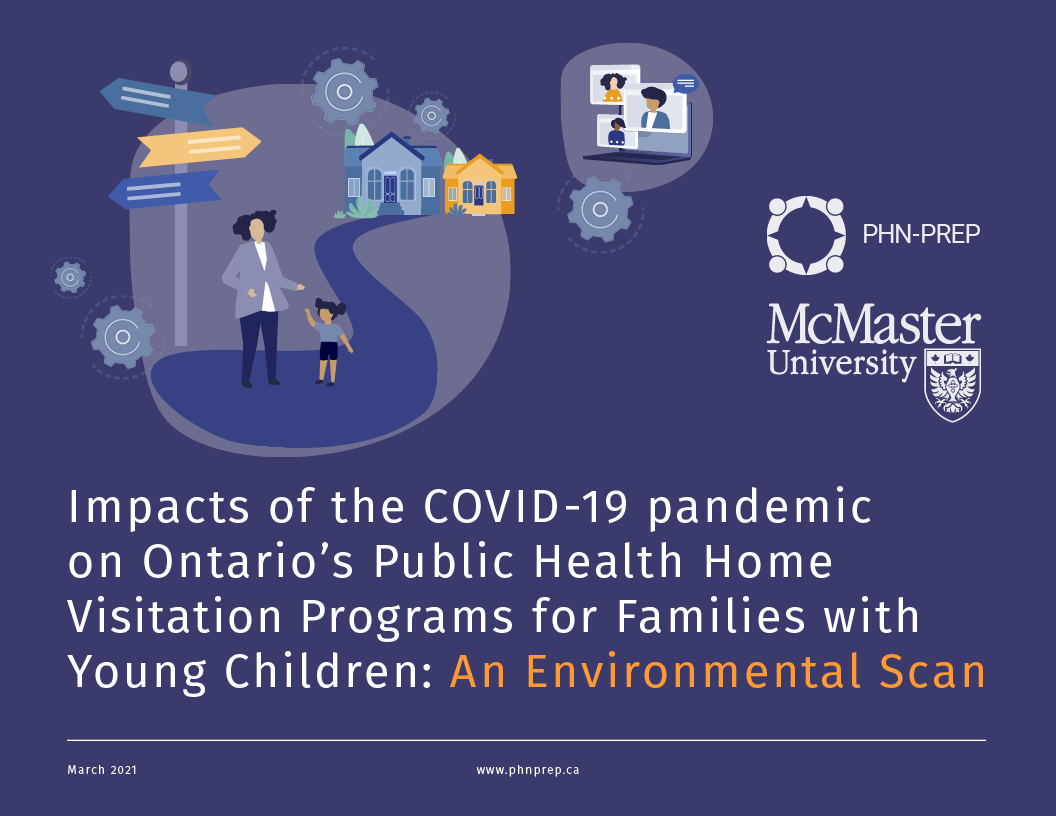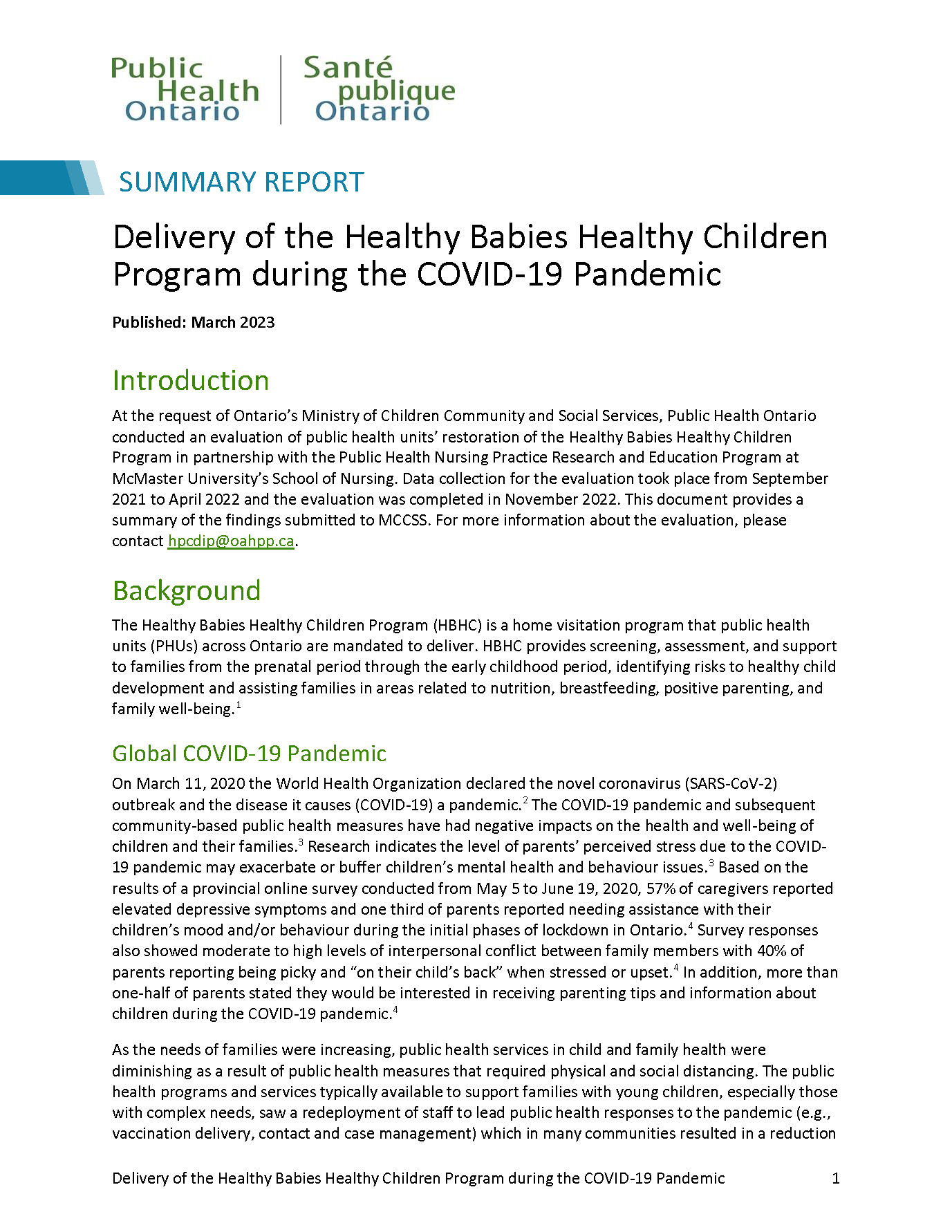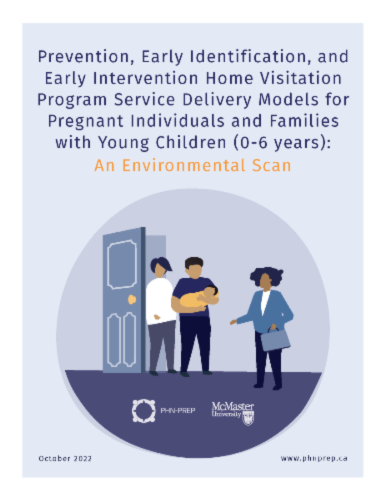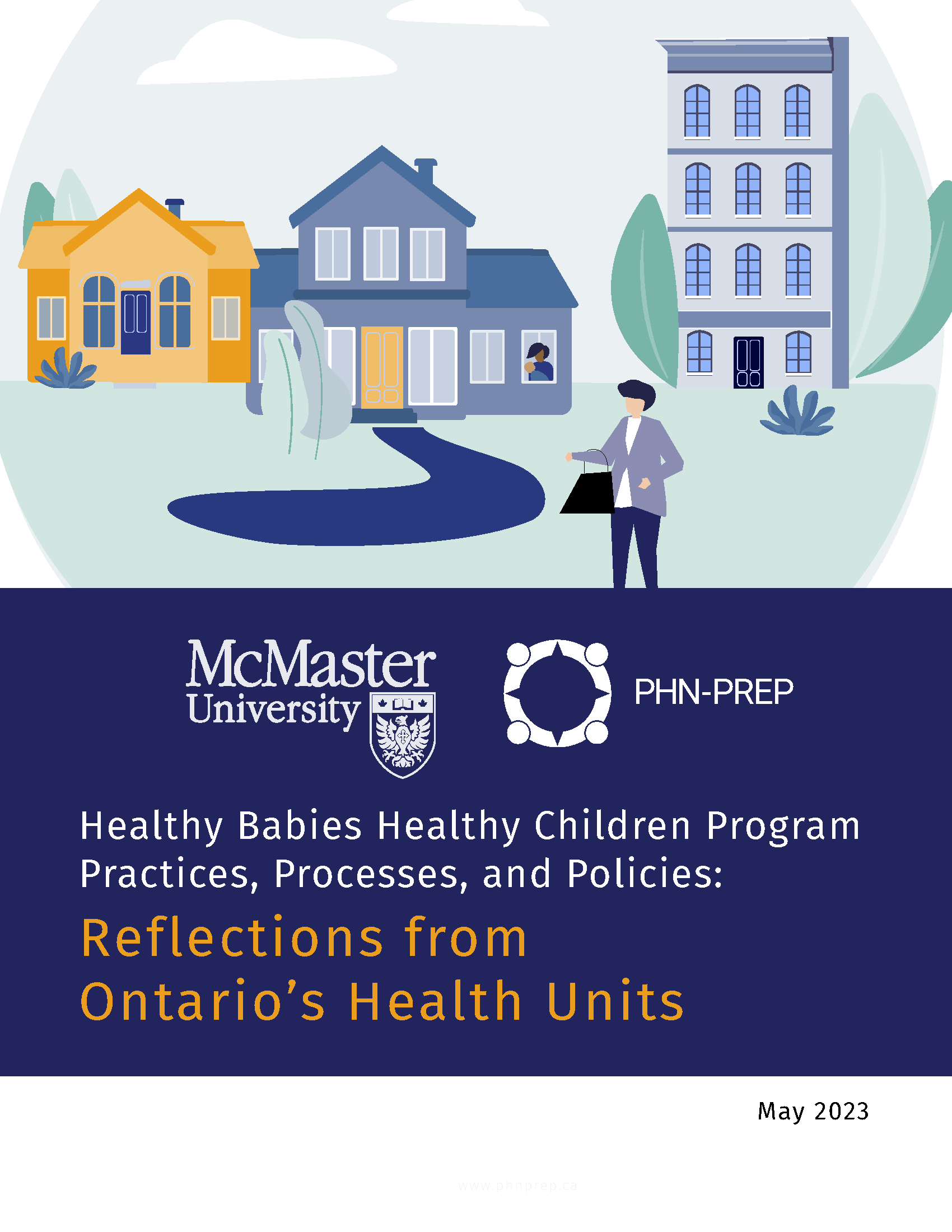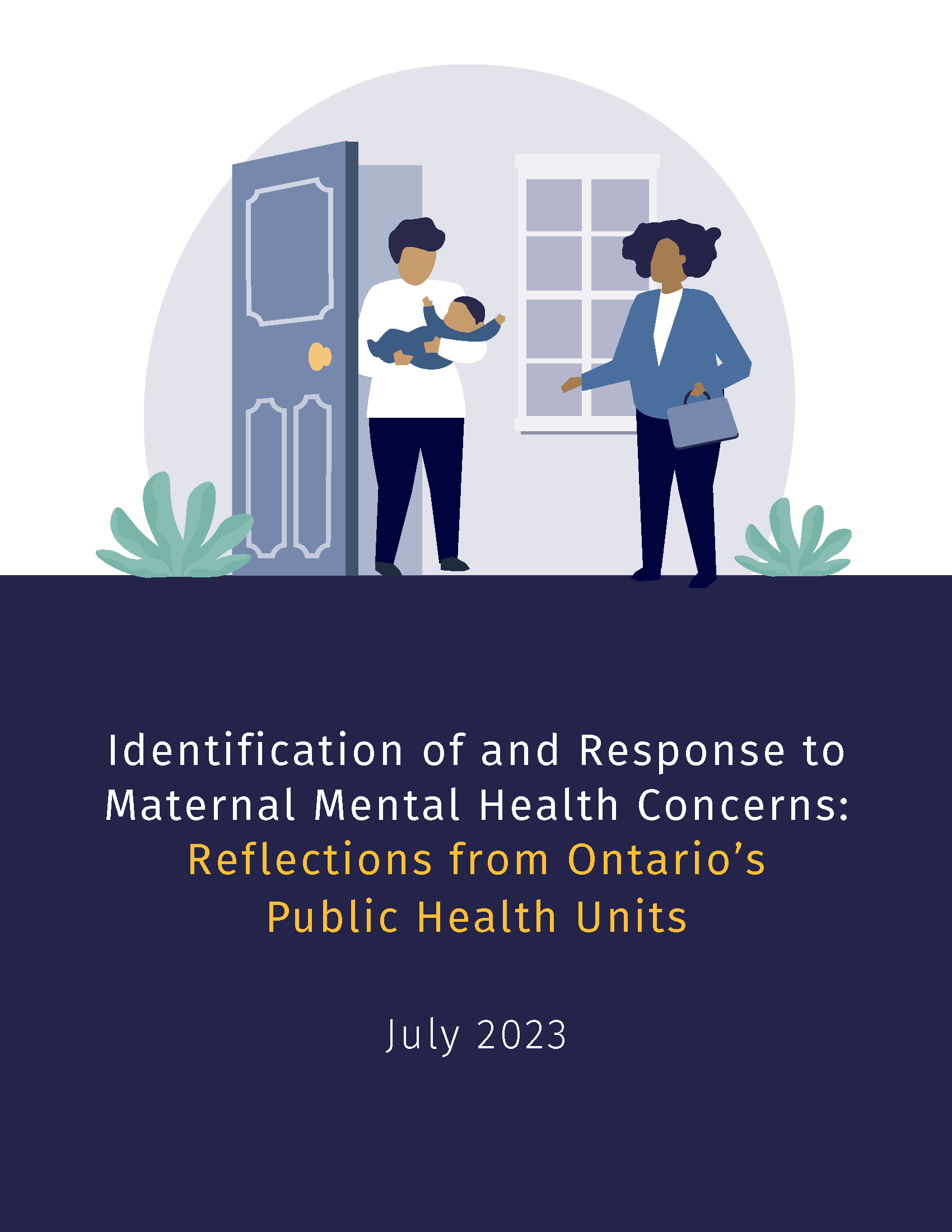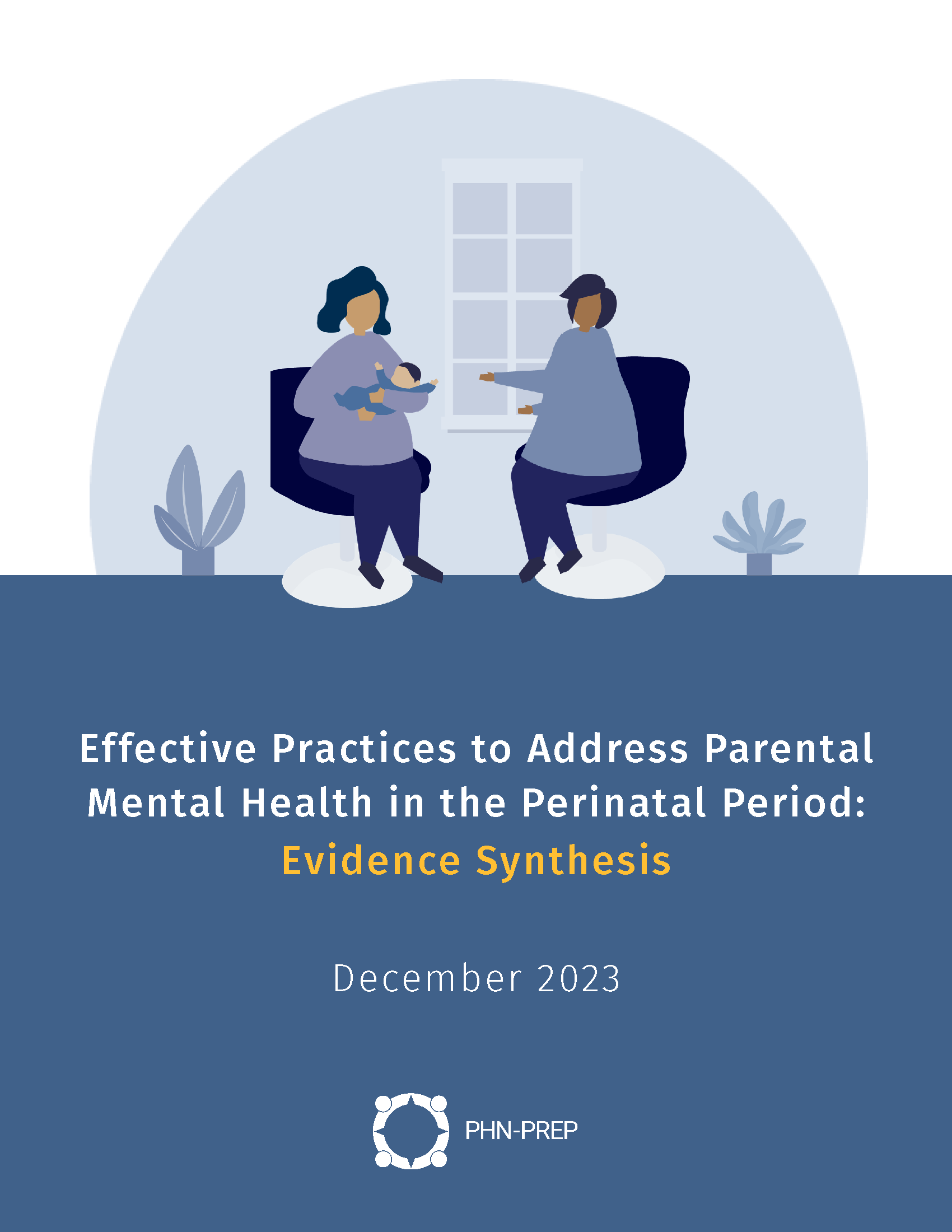Ontario HBHC Projects
The PHN-PREP team collaborates with provincial stakeholders from Ontario’s public health units, Public Health Ontario, and the Ontario Ministry of Children, Community and Social Services to on projects related to the evaluation or enhancement of the Healthy Babies, Healthy Children program.
Impacts of the COVID-19 Pandemic on Ontario’s Public Health Home Visitation Programs
Within the 2020-2021 fiscal year, this work focused on understanding how home visiting teams in the Healthy Babies, Healthy Children (HBHC) and Nurse-Family Partnership® (NFP) programs in Ontario have provided services to pregnant women and families with young children during the COVID-19 pandemic. To understand the impact of the pandemic on home visitation programming and service delivery, we surveyed Ontario’s 34 HBHC and 5 NFP programs. We also conducted 9 virtual group discussions to develop a deeper understanding of public health nurses’ experiences of home visiting and providing outreach services, and to learn about the practice-based strategies they are using to overcome challenges in their work.
Evaluation of Public Health Units’ Return to Service Delivery of the HBHC Program During the COVID-19 Pandemic
In May 2021, MCCSS requested that Public Health Ontario (PHO) conduct an evaluation of the restoration of HBHC services during the COVID-19 pandemic. The purpose of the evaluation was to describe to what extent public health units were able to restore HBHC services as planned in accordance with transfer payment agreements and program requirements as well as to document contextual factors influencing the restoration of the program. Findings from the evaluation will provide valuable information to decision makers to identify gaps in services and the degree to which public health units may require additional support in restoring HBHC program delivery as the COVID-19 pandemic evolves, for future public health emergencies and service disruptions. To conduct this evaluation, PHO partnered with the Public Health Nursing Practice Research and Education Program (PHN-PREP), at the School of Nursing, McMaster University.
Prevention, Early Identification, and Early Intervention Home Visitation Program Service Delivery Models: Environmental Scan
In HBHC, the collaborative blended home visiting component has been the primary mechanism for delivering services to eligible pregnant individuals and families with young children. Prior to 2012, a review of the literature was conducted to survey existing literature on home visiting best practices for vulnerable/overburdened families, including the identification of tools used for screening and assessment, practice guidelines, and embedded curricula and interventions. Since this review was conducted, there has been continued and sustained interest in implementing and delivering home visitation programs as amechanism to deliver early identification, early intervention, and health promotion services to families with young children. In parallel, evidence-based home visitation programs have continued to: 1) be evaluated for their effectiveness across a range of outcomes; 2) invest in the development and evaluation of program enhancements; and 3) provide expanded documentation of program model elements and mechanisms underpinning program outcomes.
The PHN-PREP team completed an environmental scan to identify and describe these program components.
Environmental Scan Objectives
- Describe the core program elements of evidence-based home visitation program models;
- Identify emerging innovations in home visitation practice, education, or supervision; and
- Describe the core program elements of home visitation programs, mandated by regional or provincial public health authorities in Canada, implemented to identify and address the health and social needs of pregnant individuals and families with young children.
Healthy Babies Healthy Children Program Practices, Processes, and Policies: Reflections from Ontario’s Health Units
This project was conducted to explore current Healthy Babies Healthy Children program practices, processes and policies at the health unit level that are perceived to be working well and to identify ongoing challenges to program delivery. Between November 2022 and January 2023, each Healthy Babies Healthy Children program in Ontario (n=34) was invited to identify at least one program manager (or designate) to participate in an interview and to complete a survey on behalf of the team.
Identification of and Response to Maternal Mental Health Concerns: Reflections from Ontario’s Public Health Units
This is a subset analysis of the Healthy Babies Healthy Children (HBHC) Program Practice, Processes, and Policies report. This summary report explores the qualitative and quantitative findings relevant to understanding how HBHC teams identify and respond to maternal mental health during the perinatal period, what mental health training resources are utilized across the province, and what further supports are needed to support nursing practice.
Effective Practices to Address Parental Mental Health in the Perinatal Period: Evidence Synthesis
This project was conducted to elicit high-level evidence related to effective practices, within the context of nurse home visitation, for the assessment and response to mental health and substance use in pregnant individuals and those in the postpartum period. This work was guided by the Advancing Public Health Nursing Practice to Address Perinatal Mental Health Working Group, which was established in June 2023 to develop and pilot practice and education resources to support public health nurses working in the Healthy Babies Healthy Children (HBHC) program, to identify, assess, and respond to caregivers’ mental health issues and illness.
